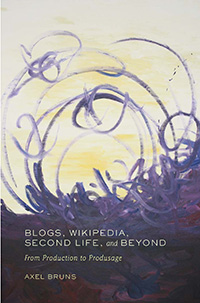You are here
Organisation in Open Source and Social Media: A Response to Chris Anderson
My colleague Julien Vayssière at the Smart Services CRC sent me a link to a post on Chris Anderson's The Long Tail blog today, which seeks to draw a distinction between the organisational paradigms of open source and social media. The key point:
What makes successful open source projects is leadership, plain and simple. One or two people articulate a vision, start building towards it and bring others on board with specific tasks and permissions. The best projects are the ones with the best leaders.
Social media, on the other hands, doesn't exist for a shared purpose. It exists to serve the individual. We don't tweet to built Twitter, we tweet to suit ourselves. We blog because we can, not because we have signed on to a blogging project.
There's some truth underlying this, but I'm sorry - as far as I'm concerned, that description is way too simplistic. Anderson goes on:
Open source is hierarchical by design, while social media structure is simply ruled by popularity.
In reality this describes only the extremes of the range from 'open source' to 'social media': not all open source projects develop around a strong leader (though such leaders emerge - and change - over time), and not all social media communities are lacking a shared purpose.
Put another way: if you define
open source = purpose, organised community
social media = no purpose, random community
then the article is necessarily right - but I don't buy that definition.
There's a whole continuum of different models in between - and in fact, many social media sites support any number of purposeful, organised, heterarchically led communities as subsets of their entire population. There are groups which use del.icio.us and Digg specifically to collaborate on knowledge-building, who use Flickr to co-create art or co-curate photographic collections, or who use Twitter to cooperate in sharing knowledge and information. Apparently there are even people using Facebook for a purpose! ;-)
Given that this whole discussion comes out of a Sourceforge breakfast, Anderson's argument sounds to me more like a bunch of open-sourcers trying to assert their moral superiority over the unwashed masses of social media than a meaningful distinction supported by observable reality.
At the same time, as I said at the start, there is some point to this - of course most open source projects are substantially more goal-oriented than generic social media communities, though again it must also be noted that social media sites support many more or less goal-focussed communities on the same platform. But that's no reason to draw an arbitrary, overly simplified line in the sand to separate the two. In writing about produsage, I've addressed this problem in a different way: produsage itself extends far into what Anderson would call the social media side, but the exact object of produsage becomes more and more difficult to define.
For open source, the object clearly is the development of software, for Wikipedia it's the maintenance and extension of a shared knowledge base, for Digg it's the collaborative filtering of the Web - for Second Life it is (for many, though not all users) the collaborative building of a shared virtual world, for some user groups on Flickr and YouTube it's variously creative collaboration, collaborative curation, or cooperation in documenting particular aspects of our world, for Facebook the object of produsage could perhaps be described very loosely simply as a shared sociality, but here we're very close to the non-goal-oriented end of the spectrum (though even here, individual user groups may have much more defined goals in mind).
The more defined that object of produsage, the more likely the emergence of the key principles and processes of produsage - which include the evolution of heterarchical leadership structures, sometimes drawing strength in particular from a few strong leaders who were there from the start. But we're talking here about (sometimes very noticeably) different shades of produsage, not entirely different colours.
What I really don't get about Anderson's post is its underlying metaphor, though: why would any self-respecting open-sourcer want to describe the organising principle of open source as similar to that of a company, when a key reason for the very emergence of open source was that hierarchical management in the software industry has so often been found to be ineffective in developing innovative software solutions?
- Snurb's blog
- Log in to post comments
- 7729 reads
 Printer-friendly version
Printer-friendly version


